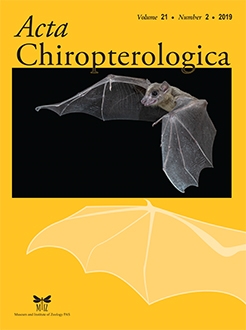In the last decades, the increase of antimicrobial resistance bacteria has become a concern of public health, already affecting unintentional hosts as isolated wild populations. In the present study, we evaluated the incidence of antimicrobial resistance, molecular mechanisms of resistance and virulence genes among 42 strains of Escherichia coli isolated from faecal samples from wild colonies of European free-tailed bats (Tadarida teniotis) in Portugal. High antimicrobial resistance rates for ampicillin (57.14%) and streptomycin (52.38%) were observed. Genes encoding resistance to antimicrobial agents were detected in most of the resistant isolates. The E. coli isolates were ascribed to phylogroups A (44.24%), B1 (16.67%), B2 (2.38%) and D (35.71%). The virulence gene fimA (alone or in association) was detected in 21 samples. This study shows the presence of antimicrobial resistance in commensal bacteria from wild European free-tailed bats populations. Future studies are necessary in order to investigate the main source of contamination (through the environment or the food chain) and identify how they can be contributing to the spread of those bacteria throughout the environment.
How to translate text using browser tools
2 March 2020
Detection of Antimicrobial Resistance in Faecal Escherichia coli from European Free-Tailed Bats (Tadarida teniotis) in Portugal
Andreia Garcês,
Susana Correia,
Vanessa Silva,
José Eduardo Pereira,
Francisco Amorim,
Gilberto Igrejas,
Patricia Poeta
ACCESS THE FULL ARTICLE

Acta Chiropterologica
Vol. 21 • No. 2
December 2019
Vol. 21 • No. 2
December 2019
antimicrobial resistance
Escherichia coli
One Health
Tadarida teniotis




